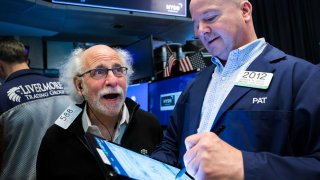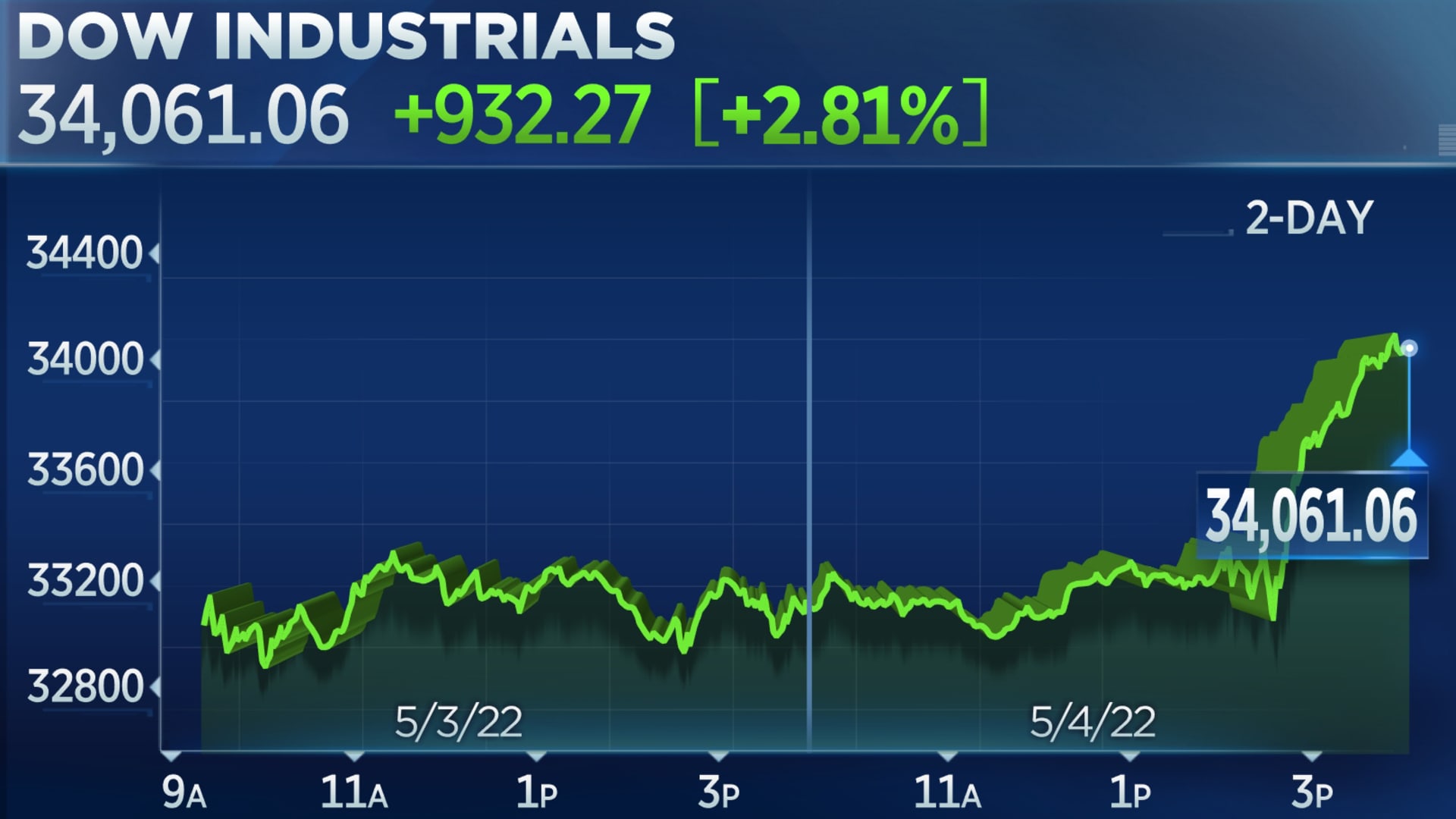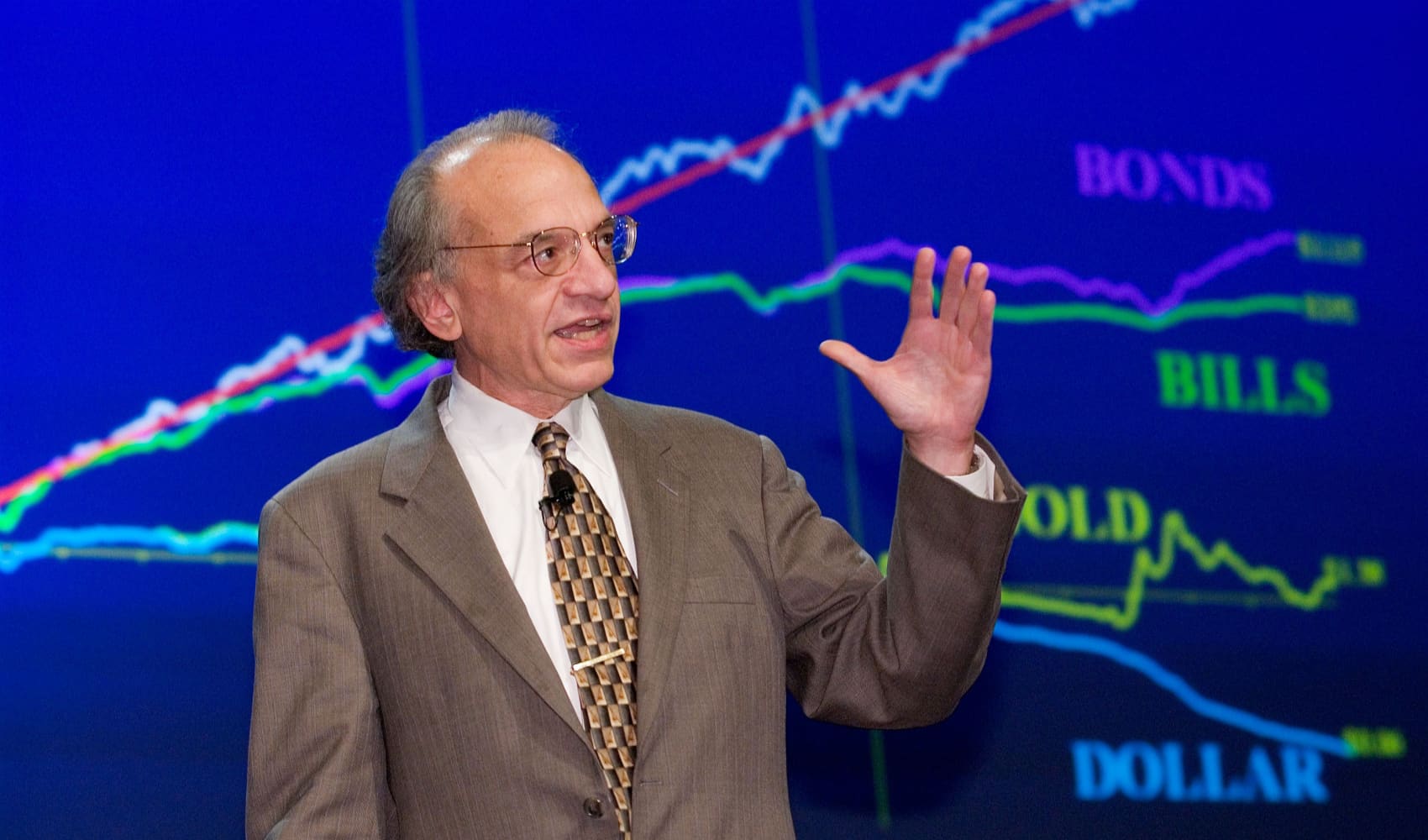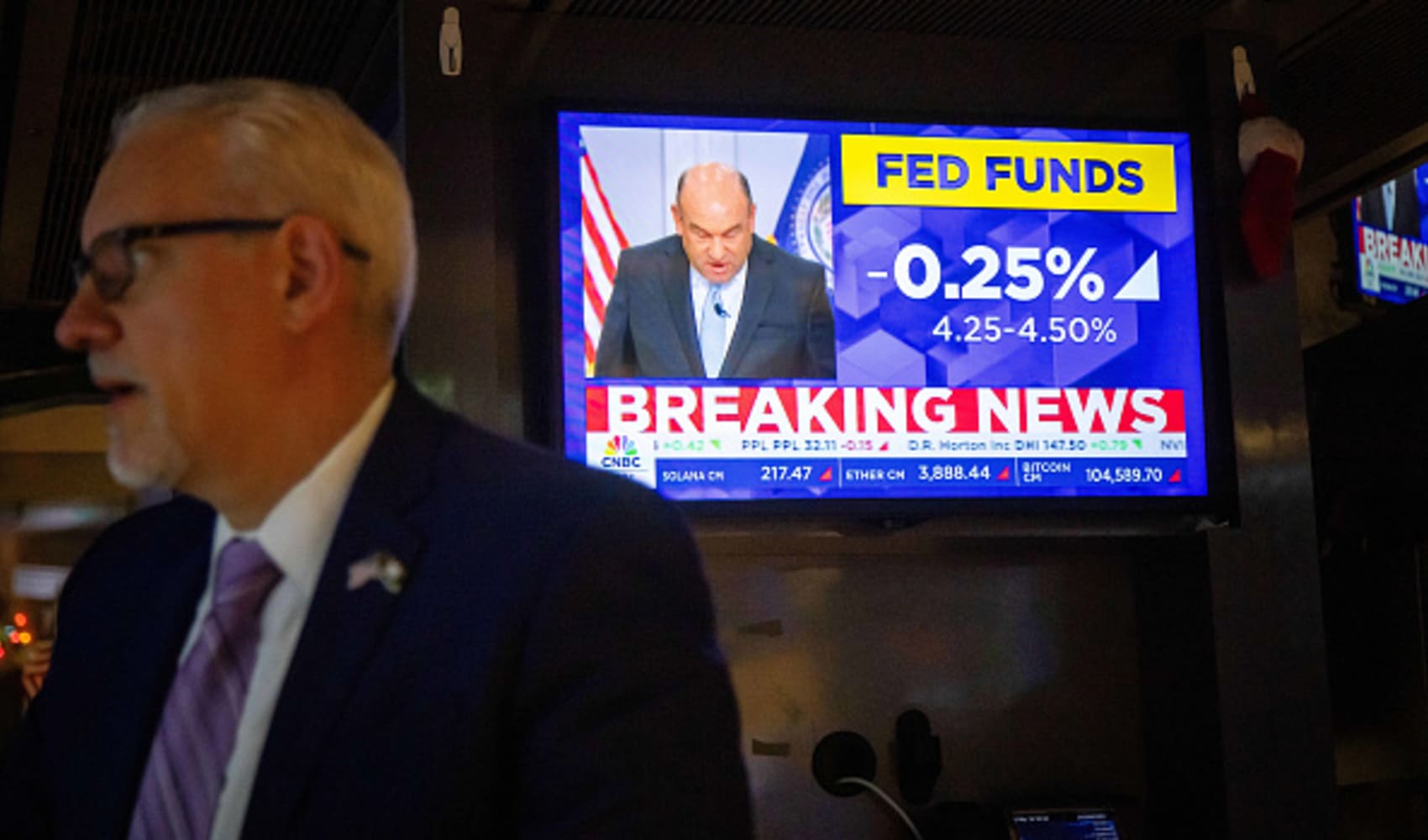
Stocks jumped sharply on Wednesday in a relief rally from their 2022 doldrums after the Federal Reserve raised rates by a widely anticipated half percentage point and Chairman Jerome Powell ruled out getting even more aggressive in the central bank's inflation-fighting campaign.
The Dow Jones Industrial Average rose 932.27 points, or 2.81%, to close at 34,061.06. The S&P 500 gained 2.99% to 4,300.17. The tech-heavy Nasdaq Composite jumped 3.19% to 12,964.86. It was the biggest gain since 2020 for both the S&P 500 and the Dow.

The central bank announced that it was hiking its benchmark interest rate 50-basis-points, or 0.5 percentage point, and would start reducing its balance sheet in June. That is the biggest rate increase since 2000 for the Fed, but the move was widely expected by investors.
Stocks moved sharply higher when Powell said the central bank was not considering an even more aggressive hike in future meetings.
Money Report
"So a 75-basis-point increase is not something that committee is actively considering," Powell said. "I think expectations are that we'll start to see inflation, you know, flattening out."
That statement helped take some of the fear out of the market, said Kim Forrest, founder of Bokeh Capital.
""I think taking that off the table ... was wise and is probably cause for some of the relief," Forrest said.
The rate hike and rally follow a brutal April for stocks, which dragged the Nasdaq into bear market territory. The S&P 500 entered Wednesday more than 13% below its record high. Both of those indexes hit their lowest levels of the year earlier this week.
Former Goldman Sachs President Gary Cohn told CNBC's "Closing Bell" that Powell "drove it right down the middle of the road" during his news conference.
"I think the market is starting to say, 'OK. We've got this pretty well priced in.' I don't think there's a lot of surprises out there. We've taken a lot of the fluff out of the market. We've taken a lot of the hot air out of the market. … We've now got some real value," Cohn said.
Powell said he believed the Fed could slow economic growth without causing a jump in unemployment, citing the high number of job vacancies and strong household balance sheets.
"I would say we have a good chance to have a soft, or soft-ish, landing," Powell said.
Investors also appeared to be betting on the Fed's confidence in the U.S. economy. Stocks seen as economic bellwethers also performed well, with Home Depot and Caterpillar rising 3.4 and 4.2%, respectively. Bank stocks also gained ground, with Citigroup climbing 4.3% and JPMorgan Chase gaining 3.3%.
The impact of the Fed's tightening on economic growth has been a key concern for markets in recent months. The majority of respondents to the May CNBC Fed Survey indicated they expect a recession at the end of the tightening cycle.
Powell repeatedly said inflation was "much too high" during his press conference and commented that additional 50-basis-point hikes would be on the table at upcoming meetings.
The gains were broad across the board for stocks. Large tech stocks moved higher following the Fed announcements, with Apple and Google-parent Alphabet gaining more than 4% each. Energy giant Chevron rose 3.1%, and Exxon Mobil added nearly 4%.
Starbucks and Airbnb, which were already higher earlier in the day after better-than-expected quarterly reports, surged 9.8% and 7.7%, respectively.
All 30 Dow stocks rose, as did some more speculative areas of the market. Docusign and Zoom Video jumped more than 5%.
One of the rare weak spots was Lyft, which plummeted nearly 30% after the ridesharing company gave weak guidance for the current quarter as it expects to invest in driver supply. Rival Uber dropped more than 4%.
Ahead of the Fed meeting, some Wall Street strategists suggested that markets could be in for a relief rally despite the rate hike. After the first increase in March, the S&P 500 jumped more than 6% in the following weeks before pulling back again in April.
The benchmark 10-year Treasury yield topped 3% again on Wednesday morning, trading near its highest level since 2018, but fell back to about 2.93% following Powell's comments.
Stocks have now risen for three straight days to start May, stabilizing after an April that saw the Nasdaq suffer its worst month since 2008.
— CNBC's Sarah Min and Kevin Stankiewicz contributed to this report.






